Love the look of these birds and how they can survive anything! The roosters seem to want to own any and everything. Maybe not for small, small children? But entertaining and efficient users of resources.
Navigation
Install the app
How to install the app on iOS
Follow along with the video below to see how to install our site as a web app on your home screen.
Note: This feature may not be available in some browsers.
More options
You are using an out of date browser. It may not display this or other websites correctly.
You should upgrade or use an alternative browser.
You should upgrade or use an alternative browser.
-
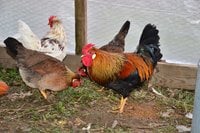 43e38834_chickens3062.jpeg497.8 KB · Views: 2,452
43e38834_chickens3062.jpeg497.8 KB · Views: 2,452 -
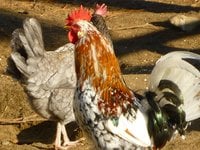 53ffd604_1121860555_P1030566.jpeg464.6 KB · Views: 2,407
53ffd604_1121860555_P1030566.jpeg464.6 KB · Views: 2,407 -
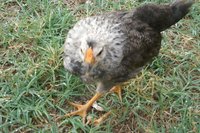 6b3ce939_GEDC0106.jpeg385.8 KB · Views: 2,382
6b3ce939_GEDC0106.jpeg385.8 KB · Views: 2,382 -
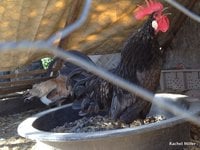 539e2746_IMG_0883.jpeg356.8 KB · Views: 2,299
539e2746_IMG_0883.jpeg356.8 KB · Views: 2,299 -
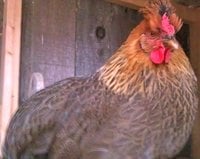 68d840bb_1490746_239941339501083_2068783895_o.jpeg209.2 KB · Views: 2,359
68d840bb_1490746_239941339501083_2068783895_o.jpeg209.2 KB · Views: 2,359 -
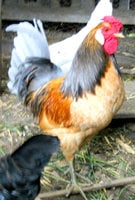 b913d395_Ryofivemonhs3.jpeg1 MB · Views: 2,348
b913d395_Ryofivemonhs3.jpeg1 MB · Views: 2,348 -
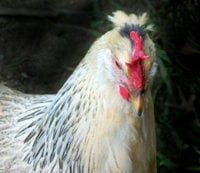 c753e566_Joafivemonths.jpeg1.4 MB · Views: 2,501
c753e566_Joafivemonths.jpeg1.4 MB · Views: 2,501 -
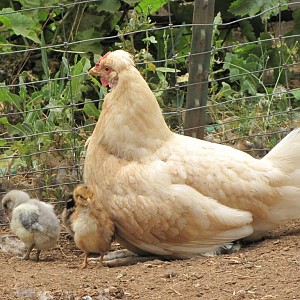 LL.jpg164.6 KB · Views: 2,718
LL.jpg164.6 KB · Views: 2,718 -
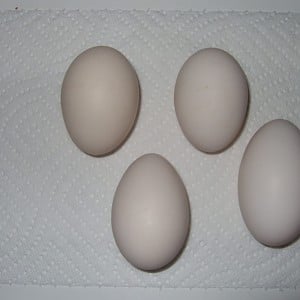 egg.jpg171.9 KB · Views: 1,347
egg.jpg171.9 KB · Views: 1,347 -
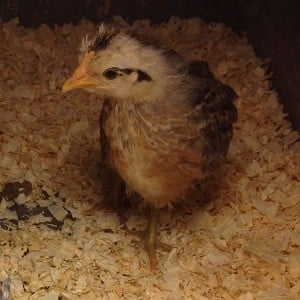 chick.jpg170.4 KB · Views: 1,433
chick.jpg170.4 KB · Views: 1,433 -
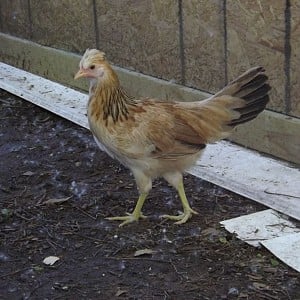 juv.jpg231.7 KB · Views: 1,417
juv.jpg231.7 KB · Views: 1,417 -
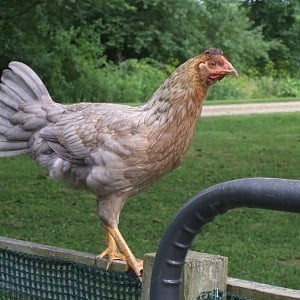 hen.jpg371.9 KB · Views: 1,370
hen.jpg371.9 KB · Views: 1,370 -
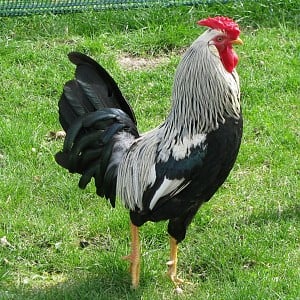 roos.jpg477.9 KB · Views: 1,280
roos.jpg477.9 KB · Views: 1,280
Icelandic or Viking Hen
- Added by ReiMiraa
- Create date
- Updated
The Icelandic could be one of the oldest chicken breeds. Because it is from Iceland it can also...
- lmatvey
- 3.00 star(s)
Pros: thrifty birds and inexpensive to purchase chicks
Cons: roosters are very domineering
- Purchase Price
- 10.00
- Purchase Date
- 2012-09-05
- goslinghunter
- 4.00 star(s)
Pros: high egg lay,broody,many colors and personalities,confines well,less flighty of white egg breeds,hens 21/2 to 43/4 lbs and roosters 41/2 to 81/2 lbs
Cons: hens can be nasty mothers,poor table bird,medium small off white eggs,variable sizes avg hen size 4 lbs rooster 6lbs roosters very vocal
icelandic viking hen
- tommysgirl
- 4.00 star(s)
Pros: Good sized egg from a small bird, great foragers, lots of color variety, Predator savvy
Cons: They took forever to figure out I was not going to twist their heads off
I got 4 Icelandic chicks last spring. Two were cockerels so I got rid of them and I kept the two pullets who I named Hatti, because of her crest the other Rue because it is an herb that grows wild in Iceland and because Rue in The Hunger Games survived as long as she did by "roosting" in trees and being predator savvy. Both of them took forever to regard me with anything but fear and distrust. Neither would eat from my hand despite daily interactions, they wouldn't walk by me to forage if I were standing to close to the doorway of the run and they would flip out every time I entered the run. That said they have mellowed considerably in the last few weeks. Rue began laying at around 22 weeks and I noticed that like a lot of pullets, once they start laying they are more tractable. She doesn't hop in my lap or anything but she will eat from my hand and doesn't get all wiggy when I go into the run. Hatti has not started yet...7+ mos but is showing signs including being a little less wary of me now.
She also was poking around in the nest boxes the other day so I snapped this pic. That she let me close enough is a big step but her expression tells you what she thinks of me spying on her.

Rue lays a larger egg than you would expect. She is on the small side and the egg is medium large. I don't have a scale so can't tell you the weight but it is a good sized egg and larger than one laid by my Dorking x Polish girl even though that pullet is much larger than Rue. She lays about 5-6 times a wek
We are not homesteaders but I think that as a landrace these are phenomenal for those that are in that they are such good foragers, able to escape predators by flying, are rumored to be broody, and lay a nice sized egg. For me they have grown on me. I like their quirky behaviors and think they are beautiful. Hattie and Rue look very much alike but Hatti has the crest and Rue has feathered legs. There are lots of different colors of Icelandic. One of the boys I got rid of was black with silver penciling and was gorgeous. They also have no standard for comb. Both my girls have rose combs but other Icelandics do not.
I think Hatti's lateness in coming to POL is unique to her as others I have spoken to say that most lay by around 20 weeks. I will update this if either of these girls goes broody.
She also was poking around in the nest boxes the other day so I snapped this pic. That she let me close enough is a big step but her expression tells you what she thinks of me spying on her.
Rue lays a larger egg than you would expect. She is on the small side and the egg is medium large. I don't have a scale so can't tell you the weight but it is a good sized egg and larger than one laid by my Dorking x Polish girl even though that pullet is much larger than Rue. She lays about 5-6 times a wek
We are not homesteaders but I think that as a landrace these are phenomenal for those that are in that they are such good foragers, able to escape predators by flying, are rumored to be broody, and lay a nice sized egg. For me they have grown on me. I like their quirky behaviors and think they are beautiful. Hattie and Rue look very much alike but Hatti has the crest and Rue has feathered legs. There are lots of different colors of Icelandic. One of the boys I got rid of was black with silver penciling and was gorgeous. They also have no standard for comb. Both my girls have rose combs but other Icelandics do not.
I think Hatti's lateness in coming to POL is unique to her as others I have spoken to say that most lay by around 20 weeks. I will update this if either of these girls goes broody.
- Chullicken
- 4.00 star(s)
Pros: Amazing foragers, great feed conversion, all colors of the rainbow you never know what you get, fascinating back story
Cons: Flighty as the day is long
If you want an interesting, out of the main stream fowl type as they are not a breed and never will be, more accurately a 'Landrace'. One that you won't ever know until they grow up what color they will be, great historical fowl with plenty of personality who are known to be great brooders..this is the bird for you. Very medium frame. Do great free ranging and willingly breed on their own for a steady flow of cute chicks that change colors several times until maturity. A very big bonus to these is the Landrace philosophy as they are not breed for type, but rather for temperament, alertness, broodiness and general character which is great. My Icelandic rooster is the best one I've ever had with an amazing rose comb to boot.
The community has a strong, knowledgeable base with very high standards almost to the point of being an elitist mentality. Worth a try though and guaranteed an interesting conversation with you fellow enthusiast.
The community has a strong, knowledgeable base with very high standards almost to the point of being an elitist mentality. Worth a try though and guaranteed an interesting conversation with you fellow enthusiast.
- my urban barnyard
- 4.00 star(s)
Pros: beautiful and easy keeper
Cons: a bit flighty
I also bought hatching eggs from Lyle Behl (I appreciated all the details he shared with me about his history with the breed.) and had a high hatch rate (some under a broody, some in 'bator, all raised by broody) and ended up with a beautiful assortment of colors/patterns. With a small coop and existing hens, I kept only one hen for myself and gave the rest away to a friend. We both agree the birds are a fun addition to our flocks, but maybe not for everyone. They are a bit flighty (pro or con), but that doesn't bother me. Mine is the only one of my hens that won't come eat out of my hand, but I really don't know if that is because she was hen raised and the rest were not or if everyone else just crowds her out. Eggs are only medium in size. Fine for my personal use, but maybe too small if someone were wanting to sell them.
All-in-all I'd say they may not be good for someone wanting a cuddly bird or large eggs, but great for adding interest to the chicken flock.
All-in-all I'd say they may not be good for someone wanting a cuddly bird or large eggs, but great for adding interest to the chicken flock.
- LisaNH
- 5.00 star(s)
Pros: Self-sufficient, great foragers, beautiful, so much variety in pattern and color
Cons: They fly really well, some will roost in trees unless clipped
I drove from NH to Illinois to purchase my flock in March of 2007 and have been raising and breeding them ever since.




I love all the variety in color and pattern. I love how well they forage -- they will completely ignore the grain dish as long as there are bugs and grass. The Icelanders call them "pile chickens" because of how much they will go through compost piles. Mine go out in all weather, even snow. They lay well all winter long. They will reliably go broody and are great mothers, roosters are helpful in raising brood.
I've documented their entire life with me -- over 1200 images of gorgeous Icies:
https://www.flickr.com/photos/lisanh/sets/72157609139289297/
I love all the variety in color and pattern. I love how well they forage -- they will completely ignore the grain dish as long as there are bugs and grass. The Icelanders call them "pile chickens" because of how much they will go through compost piles. Mine go out in all weather, even snow. They lay well all winter long. They will reliably go broody and are great mothers, roosters are helpful in raising brood.
I've documented their entire life with me -- over 1200 images of gorgeous Icies:
https://www.flickr.com/photos/lisanh/sets/72157609139289297/
- Purchase Price
- 15.00
- Purchase Date
- 2007-03-03
- Fowlman4
- 5.00 star(s)
Pros: Hardy, productive, colorful, thrifty, great foragers, great moms
Cons: The only con would be if you're expecting those meat machines Americans call chickens.
I've raised a lot of different kinds of chickens, and this landrace (NOT a breed, google it) is far and away the most awesome chickens I've ever had. They do everything you want a homestead flock to do, in spades! If you're looking for a terrific flock for your farm, or even for your urban coop, really do consider Icelandics. You'll love the kaleidoscope of colors they come in, you'll love how many eggs the hens will lay for you and how economical they are with your feed bill, and you'll love their hardy, dependable nature. And if you need a meat chicken for your table you can always raise a few Cornish Cross. Icelandics are too pretty to butcher.


- deputychicken21
- 5.00 star(s)
Pros: Beautiful, unique, Self sustaining
Cons: Flighty
In my opinion Icelandics are the best chicken to have. They practically take care of themselves. They are extremely hardy in heat and cold. Their beauty can not be matched.I would recommend them to anyone.
- MTmillefleur
- 5.00 star(s)
Pros: Thrifty, hardy, beautiful, good egg layers
Cons: Too smart for their own good, can fly
Much more interesting than any other of the many breeds I have lived with in more than 60 years. I like their reactive instincts, like wild birds. They are very curious and intelligent and if raised right, given treats and around calm people they are very friendly. Each bird has his or her own distinct personality.
If raised together, boys get along well, with one being the top rooster and others staying submissive to him. Roosters are very protective of their hens (they will die for them), and so a human needs to be understanding of that and not be perceived as threatening to flock members. If a human is aware and is quiet and calm, roosters can be very friendly. Mine brings me treats and drops them at my feet. Hens make good mothers, and great layers of medium eggs. Mine stop when molting and begin laying again in mid-January, with no additional light or heat in a quite airy coop in Montana winters.
I love their unpredictable coloring. It is always a treat to see a new batch of chicks and their colors, and then wonder how they will look in three months and then adults since they change so much.
They are great free-rangers, but must have predator protection by fencing, electric fencing or livestock guard/protection dog(s).
If raised together, boys get along well, with one being the top rooster and others staying submissive to him. Roosters are very protective of their hens (they will die for them), and so a human needs to be understanding of that and not be perceived as threatening to flock members. If a human is aware and is quiet and calm, roosters can be very friendly. Mine brings me treats and drops them at my feet. Hens make good mothers, and great layers of medium eggs. Mine stop when molting and begin laying again in mid-January, with no additional light or heat in a quite airy coop in Montana winters.
I love their unpredictable coloring. It is always a treat to see a new batch of chicks and their colors, and then wonder how they will look in three months and then adults since they change so much.
They are great free-rangers, but must have predator protection by fencing, electric fencing or livestock guard/protection dog(s).
- ReiMiraa
- 5.00 star(s)
Pros: Rare, Free Ranging, Eggs
Cons: Flighty
I love this breed. There is no standard to it. They come in many colors and crested or not. Mine fend for themselves often. They are a bit flighty, love trees and to fly out of the pens.... They are really good fliers.
I would like to think their egg productivity is average... but mine tend to hide the eggs very well. I do know they are medium cream/white.
I would like to think their egg productivity is average... but mine tend to hide the eggs very well. I do know they are medium cream/white.
- Purchase Price
- 10.00
- greatergraceoffbg
- 5.00 star(s)
Pros: Beautiful, hardy, productive, homestead chickens
Cons: Absolutely NONE
I bought my first eggs from Lyle Behl. I still have three roosters and one hen from that first hatch. I have since hatched and given away dozens. You will find a great Icelandic group on here and they are very generous in helping you get eggs and chicks. The array of color, the odd stiff legged march of the rooster, the tendency to be able to escape from anything and nest anywhere is both amusing, maybe discouraging for some people, and encouraging in that you know some of them WILL survive! They lay medium white eggs, have every color of chick from black, white, spotted, chipmunk stripped, crested, feather legged, smooth legged, as well as combs never seen on other chickens! These are the best fun in the world, elegant yet tough. With a yard of Icelandics and a comfy rocking chair I have no need of any other retirement plan. I LOVE my Icelandics!
- Purchase Price
- 30.00
- Purchase Date
- 2009-10-07
- RedIII
- 5.00 star(s)
Pros: Good eggs for size of bird, smart, colorful, cold- and heat-tolerant, watchful roosters
Cons: Can be a little wild, likes to hide nests
I've been raising and keeping Icelandic chickens for about a year and a half, now. I was first drawn to the breed by the diversity of the feather colors present, as well as its proclaimed hardiness. Over all, I have been delighted with the breed. I currently live in a large city environment, but am looking to move to a much more rural area within the next year or two. So, I wanted birds that were good foragers, keen to predator danger, and decent egg layers.
Foraging/feeding habits:
My birds are very good at feeding themselves. If there is something edible where they range, they will find it and rarely let food go to waste, if ever. I have seen them eat everything from the ornamental berries around our yard, to numerous bugs, to somewhat-fermented feed leftovers dumped out of other chicken pens. They are also appreciative of any food scraps you may give them. I feed mine whole or cracked grains daily, but also give them stale (non-sugary) cereals, old popcorn, vegetable and/or fruit scraps, bread scraps, etc. They'll take it all.
Temperament and personality:
My birds are generally agreeable in temperament. Once in a while you'll get a mean bird, but I think the same can be said of any breed. The hens have no problem coming near people that they know, but they will avoid strangers like the plague. Some individuals may be picked up and held or carried around; others do not want to be touched. If they are not handled frequently, they will turn somewhat feral and will avoid human contact. They are only mildly competitive and get along with most other large fowl in a flock, but they do get picked on some because of their smaller size. The roosters are good at finding food for their hens and are very tolerant of chicks coming around them; if raised together, males won't usually fight each other. Unfortunately, I have not yet had any hens go broody, so I cannot say what kind of mothers they make.
Laying:
When my hens started laying, I had a pair of sisters who both began at about 5 months of age. My other hen didn't start until she was 8 months old, so it can vary from hen to hen. They are fairly good layers and I have been surprised at the size of their eggs, for how small the birds are. The average size of egg that I collect from mine are probably considered a medium, with some large eggs interspersed here and there. My hens each lay about five eggs a week. I would raise caution, though, that if you free range your flock, you can count on hunting a lot for any Icelandic eggs you may be getting. My girls will lay in the nest box, but given half the chance, they will scout out other "more suitable" nesting locations and stash their eggs there. I attribute this largely to the breed's strong drive for survival, and I find it enjoyable to hunt for eggs, but if you don't want to be combing through your woodpiles and bushes, you have been warned.
Tolerance to environment:
I have been pleased to see that the Viking hen's reputation for being hardy is well-earned. I live in a desert mountain area where temperatures can range from zero degrees Fahrenheit in the winter to low triple digits in the summer. My birds have done well in both extremes. When winter gets bitterly cold, I do supply a heat lamp in the coop, but my Icelandics are some of the first to venture out into the snow in search of food or entertainment. They are aware of the cold, but it doesn't really bother them. They are also tolerant to heat, though I should point out that they get plenty of shade and water in the summertime. I have been able to keep my birds in a smaller pen, when needed, but they much prefer the ability to free range. While mine are tolerant of being caged, they are always very unhappy about it. I've noticed, too, that they are very watchful of what goes on around them, and while the roosters can be a tad excitable, they are good at sounding alarms when they think they see danger.
One thing that could be both a Pro and a Con is that this breed is a good flyer. We have a half acre yard, and I have had my hens fly across half of the back yard in one go. They are excellent jumpers and can easily get over our three-foot-tall fence, whether their wings have been clipped or not. They are incredible escape artists and love to roam.
To finish, I would recommend this breed to anyone looking for a good homesteading or free ranging chicken. I would NOT necessarily recommend them for anyone that doesn't have at least a large yard. You will find that they are worth their weight in gold, with all of their traits, and they give a moderate amount of eggs. A definite bonus is the range of colors that can be produced from a single pairing. If you enjoy eye candy, you probably won't be disappointed to have Icelandics among your flock.
Foraging/feeding habits:
My birds are very good at feeding themselves. If there is something edible where they range, they will find it and rarely let food go to waste, if ever. I have seen them eat everything from the ornamental berries around our yard, to numerous bugs, to somewhat-fermented feed leftovers dumped out of other chicken pens. They are also appreciative of any food scraps you may give them. I feed mine whole or cracked grains daily, but also give them stale (non-sugary) cereals, old popcorn, vegetable and/or fruit scraps, bread scraps, etc. They'll take it all.
Temperament and personality:
My birds are generally agreeable in temperament. Once in a while you'll get a mean bird, but I think the same can be said of any breed. The hens have no problem coming near people that they know, but they will avoid strangers like the plague. Some individuals may be picked up and held or carried around; others do not want to be touched. If they are not handled frequently, they will turn somewhat feral and will avoid human contact. They are only mildly competitive and get along with most other large fowl in a flock, but they do get picked on some because of their smaller size. The roosters are good at finding food for their hens and are very tolerant of chicks coming around them; if raised together, males won't usually fight each other. Unfortunately, I have not yet had any hens go broody, so I cannot say what kind of mothers they make.
Laying:
When my hens started laying, I had a pair of sisters who both began at about 5 months of age. My other hen didn't start until she was 8 months old, so it can vary from hen to hen. They are fairly good layers and I have been surprised at the size of their eggs, for how small the birds are. The average size of egg that I collect from mine are probably considered a medium, with some large eggs interspersed here and there. My hens each lay about five eggs a week. I would raise caution, though, that if you free range your flock, you can count on hunting a lot for any Icelandic eggs you may be getting. My girls will lay in the nest box, but given half the chance, they will scout out other "more suitable" nesting locations and stash their eggs there. I attribute this largely to the breed's strong drive for survival, and I find it enjoyable to hunt for eggs, but if you don't want to be combing through your woodpiles and bushes, you have been warned.
Tolerance to environment:
I have been pleased to see that the Viking hen's reputation for being hardy is well-earned. I live in a desert mountain area where temperatures can range from zero degrees Fahrenheit in the winter to low triple digits in the summer. My birds have done well in both extremes. When winter gets bitterly cold, I do supply a heat lamp in the coop, but my Icelandics are some of the first to venture out into the snow in search of food or entertainment. They are aware of the cold, but it doesn't really bother them. They are also tolerant to heat, though I should point out that they get plenty of shade and water in the summertime. I have been able to keep my birds in a smaller pen, when needed, but they much prefer the ability to free range. While mine are tolerant of being caged, they are always very unhappy about it. I've noticed, too, that they are very watchful of what goes on around them, and while the roosters can be a tad excitable, they are good at sounding alarms when they think they see danger.
One thing that could be both a Pro and a Con is that this breed is a good flyer. We have a half acre yard, and I have had my hens fly across half of the back yard in one go. They are excellent jumpers and can easily get over our three-foot-tall fence, whether their wings have been clipped or not. They are incredible escape artists and love to roam.
To finish, I would recommend this breed to anyone looking for a good homesteading or free ranging chicken. I would NOT necessarily recommend them for anyone that doesn't have at least a large yard. You will find that they are worth their weight in gold, with all of their traits, and they give a moderate amount of eggs. A definite bonus is the range of colors that can be produced from a single pairing. If you enjoy eye candy, you probably won't be disappointed to have Icelandics among your flock.
- Hangtown Farms
- 5.00 star(s)
Pros: flighty and small eaters
Cons: like to perch in trees
I love them. so neat looking and hardy. They spook easy and are great in the mountains.
I would like more . looking for some hatching eggs from spotted and crested hens.
all mine are crested but not spotted. I have yet to see any spotted ones on the west coast.
I would like more . looking for some hatching eggs from spotted and crested hens.
all mine are crested but not spotted. I have yet to see any spotted ones on the west coast.
- Sonny Hatten
- 5.00 star(s)
Pros: I seem to notice a slight top not on these birds and the colors beautiful.
Cons: i dont know
Dont know if they are bantams or standard or what......i like them . plz let me know as want some
- chicken11
- 5.00 star(s)
I hope I can get one. They're pretty cool.




- RingedTeal
- 5.00 star(s)
Pros: Good broodies-Great Free Rangers
These are the best chickens ever.They are GREAT Broodis,Rangers, and they come in so many colors.Some even have crests.



